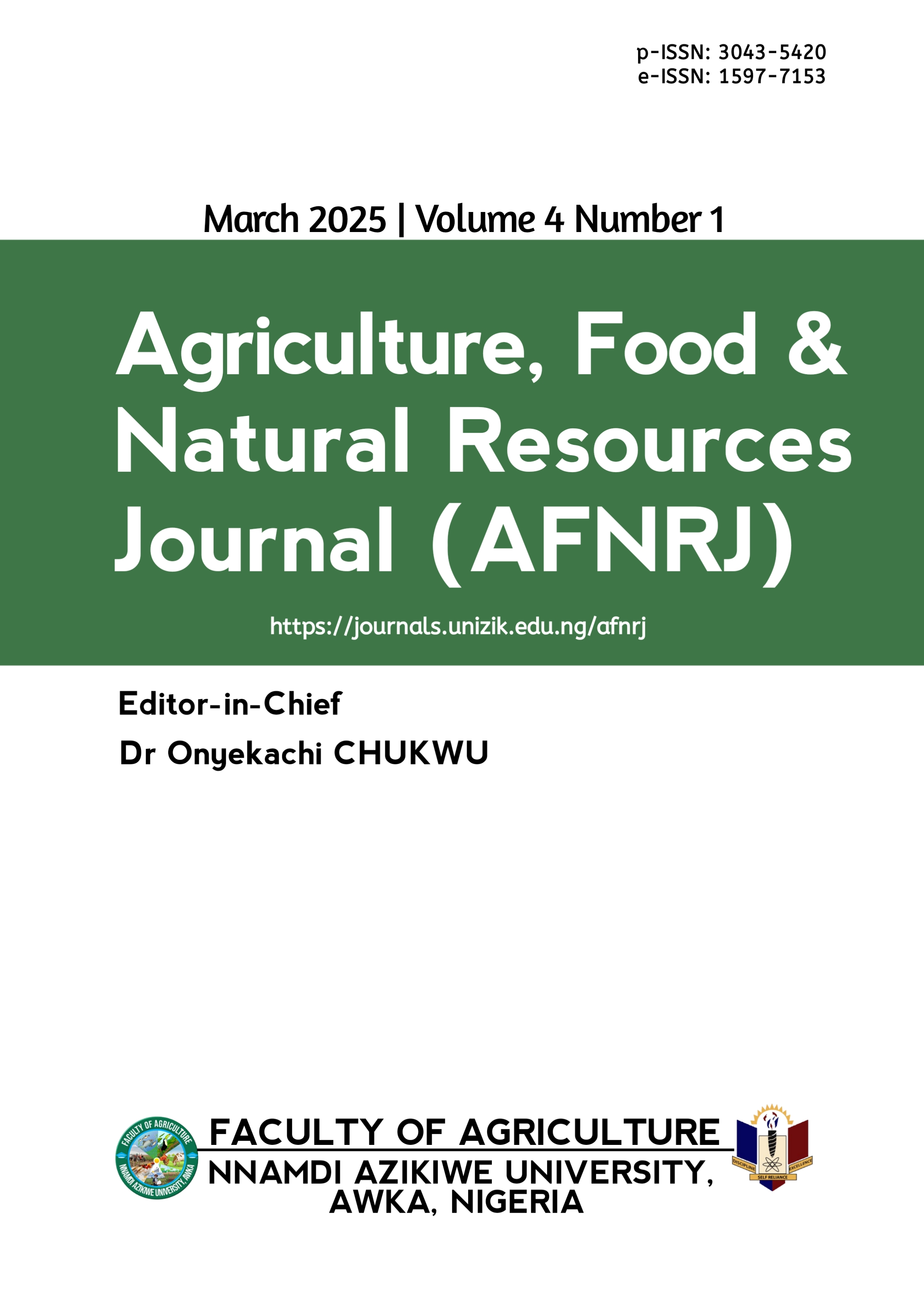Impact of financial constraints on profitability of small-scale roadside fish processors in Lagos State, Nigeria: A multivariate regression approach
DOI:
https://doi.org/10.5281/zenodo.15105560Keywords:
Financial accessibility, Business resilience, Cost management, Operational efficiency, Small-scaleAbstract
Small-scale roadside fish processors play a critical role in food security, employment creation, and economic resilience, particularly in developing economies such as Nigeria. This study examines the impact of financial and experiential constraints on the profitability and sustainability of small-scale roadside fish processors in Lagos State, Nigeria. A total of 150 fish processors were selected using a simple random sampling technique. Data were collected through structured questionnaires, interviews, and observations and analyzed using a multivariate regression approach. The findings highlight the significant negative influence of financial constraints—limited access to credit (p = 0.025), high operating costs (p = 0.097), and insufficient capital (p = 0.002)—on key profitability metrics, including net profit margin, gross profit margin, and break-even point. Experiential constraints also play a pivotal role, with processors having less than six years of experience exhibiting the strongest negative impact on sustainability (p < 0.001). Younger processors (below 36 years) showed a positive association with profitability (p = 0.048), while higher education levels reflected potential opportunity costs and skill mismatches (p = 0.013). The findings emphasize the need for targeted interventions to enhance the sustainability of this sector. Recommendations include creating affordable credit schemes tailored to the needs of small-scale processors, promoting energy-efficient technologies to reduce operational costs, and implementing structured training programs and mentorship initiatives to bridge experiential gaps. Addressing these critical constraints will enable policymakers and stakeholders to strengthen the resilience and ensure the long-term sustainability of this vital sector, thereby enhancing food security and improving livelihoods in Lagos State and similar contexts.
Downloads
Published
Issue
Section
License

This work is licensed under a Creative Commons Attribution 4.0 International License.
which permits unrestricted use, distribution, and reproduction in any medium, provided the original author and source are credited.
Authors retain the copyright of their published work in the AFNRJ.





